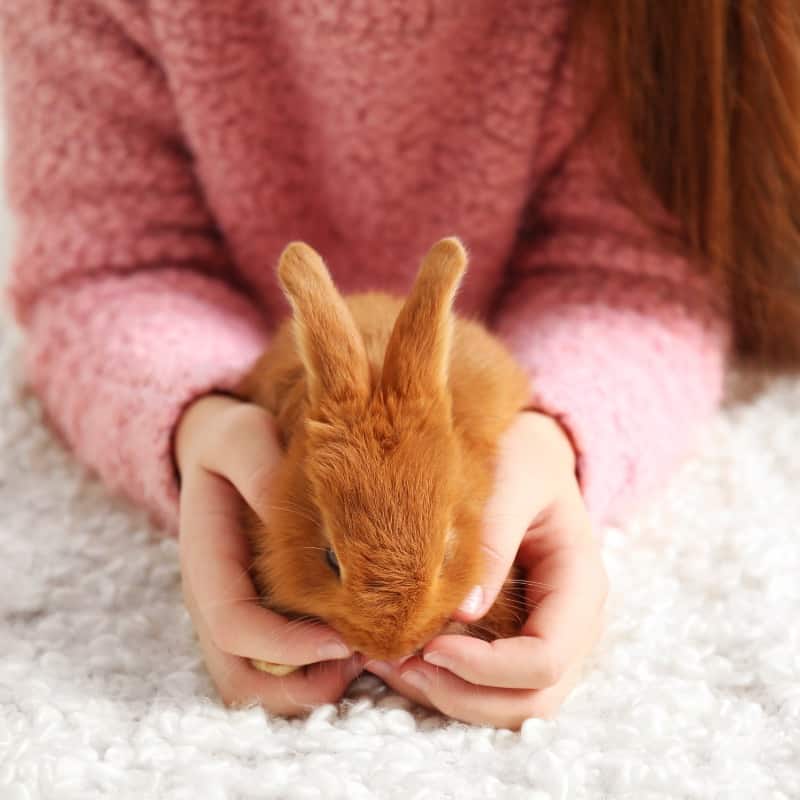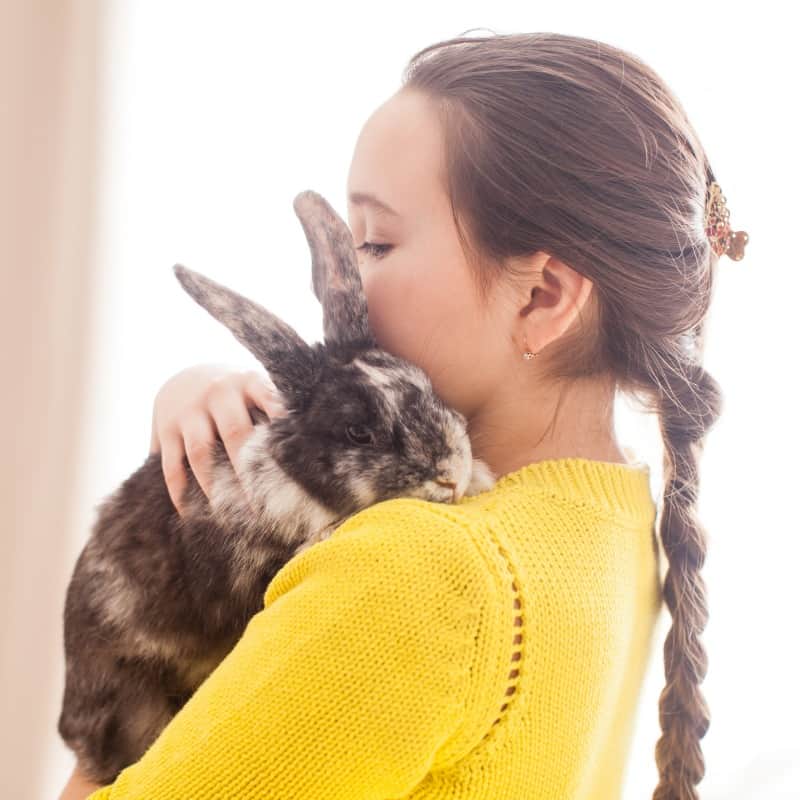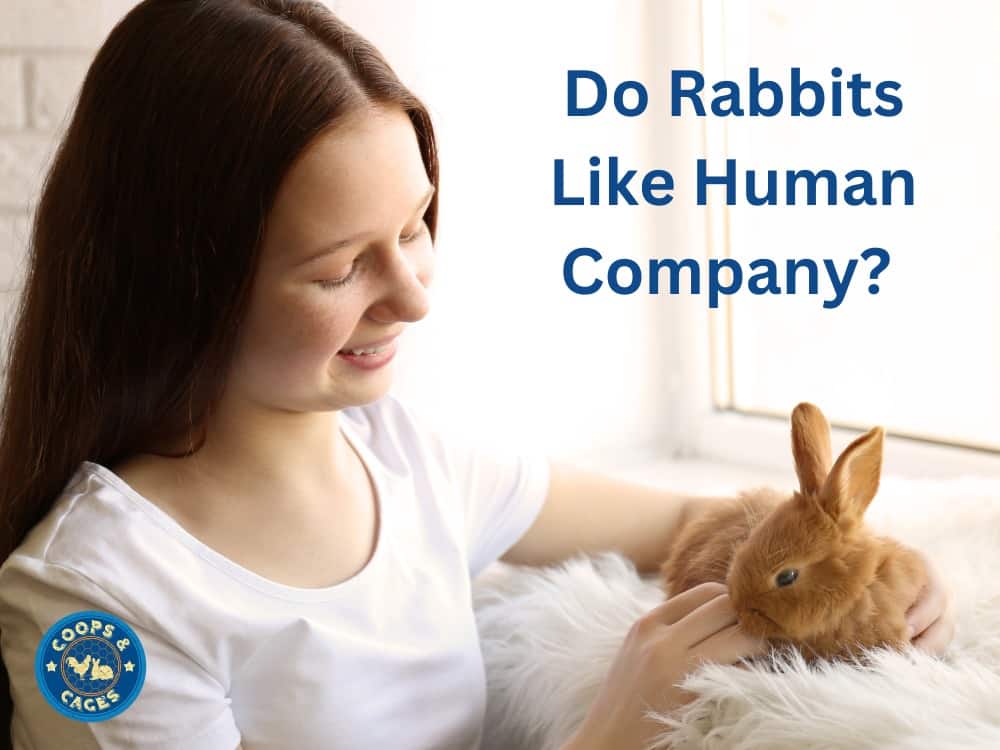Interesting, Rabbits
Do Rabbits Like Human Company? Your Guide to Bunny Bonding
G’day! I’m Jordan, your go-to pet enthusiast. Have you ever looked into the eyes of a bunny and wondered: do rabbits like human company?
Well, you’re not alone! We’ve all seen those adorable social media videos where bunnies are happily hopping around their owners or cuddling on the couch. But is that just movie magic or do these fluffy friends genuinely enjoy our companionship?
I know what it’s like to question this – one look at my own rabbit’s twitching nose sends me down a similar path. Over time, I’ve learnt how to read her subtle signs and understand her needs better.
In this blog, we dive into why having human buddies can be good for pet rabbits. We’re talking perks from socialising, understanding their one-of-a-kind rabbit body language, and tips on crafting a safe haven. Do rabbits like human company?
Let’s find out together…
Benefits of Human Company for Rabbits
Rabbits, just like us humans, crave companionship. They are social creatures and they benefit greatly from interacting with their human friends.
But what exactly does company do for our fluffy pals?
Mental Stimulation and Socialisation
A rabbit’s life isn’t all about munching on hay or hopping around the garden. Mental stimulation is essential too! Studies by the RSPCA show that interaction with humans can help stimulate your bunny’s mind in ways toys or other rabbits can’t.
This type of engagement keeps them alert, active, curious – basically everything you want to see in a happy rabbit.
Long Term Health
A happy pet equals a healthy one. Interaction provides more than joy; it can also improve their physical health. A rabbit who regularly interacts with humans is less likely to develop stress-related diseases.
So, while you’re making your pet’s day brighter, you’re also contributing to its longevity.

Signs of Enjoyment in Rabbits
Rabbits, like humans, have unique ways to express their feelings. A rabbit who’s happy around humans often shows a range of behaviours.
Licking and Nuzzling
Bunnies may also show affection by licking people – much like dogs do. This is considered a grooming behaviour which indicates trust towards the person being groomed.
Nuzzling too is another endearing habit. If your rabbit companion nudges you gently with its nose, this could be a request for attention or an indication that it feels comfortable around you.
Flopping Down Next to You
If a rabbit flops down next to you totally relaxed – congratulations. It means they see no threat from you but rather view your proximity as secure and comforting.
Flopping is typically seen when bunnies are at ease within their environment so consider this one big compliment.
Binkying
Binkying is when a rabbit jumps into the air and twists its body around. This is an expression of pure joy! When a rabbit binkies in your presence, it’s proof your bunny feels delighted with your human companionship.
Acknowledging Your Presence
If your bunny acknowledges you when you enter the room or it follows you around, this shows interest and curiosity – clear signs that your company is appreciated.
Purring
Rabbits aren’t known for being vocal, but they do sometimes make sounds to communicate. Purring often means your rabbit feels happy – it’s like them saying “I enjoy your company.”
Jordan’s Tip:
Every bunny has its own personality and preferences. Some might prefer quiet cuddles while others enjoy playful interactions. The important thing is finding what works best for your furry friend – and enjoying the process together.
Training Your Rabbit to Enjoy Human Company
Rabbits are sociable creatures that can form deep bonds with their human companions. But this connection doesn’t happen overnight; training rabbits requires time, patience, and an understanding of bunny behaviour.
Start Small and Be Patient
Rabbits are prey animals, so they may be naturally cautious around humans at first. To help get used to each other, spend time near their enclosure without trying to handle it right away. This will let it adjust to your presence on its own terms.
Patience and persistence are key here – don’t rush the process or force interaction as it might scare off your furry friend. Give them some space and they’ll come around in no time.
Positive Reinforcement
Rewarding positive behaviours with treats like fruits or vegetables can encourage your rabbit to interact with you more. Make sure not to overdo these treats though, too many sweets aren’t good for their health.
You could also try grooming sessions such as gentle brushing – some pet rabbits love being groomed. You can also use clicker training with rabbits however this will require a lot of time and effort.
Safe Environment
A well-designed hutch offers security and comfort, crucial for your rabbit to feel safe and thrive. If your rabbits live in a secure home, this is the ideal environment to gradually build trust and bond with you.
Coops and Cages offer quality hutches and runs to help your bunnies (or guinea pigs) feel safe and happy.

FAQs in Relation to Do Rabbits Like Human Company
Do Rabbits Get Attached To Their Owners?
Rabbits can definitely form a strong bond with their human caregivers, showing signs of attachment through behaviours like seeking attention and responding positively to interaction.
Are Rabbits Affectionate To Humans?
Rabbits are known to show affection towards humans in their own unique ways – such as licking, nuzzling, or gently nibbling at clothing.
Why Does My Bunny Lick Me When I Pet Him?
If your bunny licks you while being petted, it’s typically a sign that he enjoys the contact. Licking is one way pet bunnies display affection and comfort around trusted companions.
Jordan’s Wrap
Do rabbits like human company? Yes, rabbits can indeed benefit from our companionship. They are social animals that thrive on the mental stimulation rabbit owners give through playtime.
But remember, each bunny is unique with its own quirks. So take time to understand its body language for signs of joy or stress.
A happy relationship comes naturally when you respect your rabbit’s space and reward positive behaviour. Creating a safe haven with plenty of hiding spots also helps them feel comfortable around us humans.
In short – be patient, observant and respectful in building trust with your furry pal!



